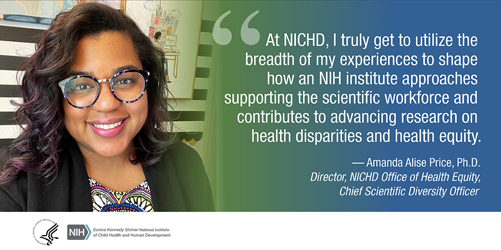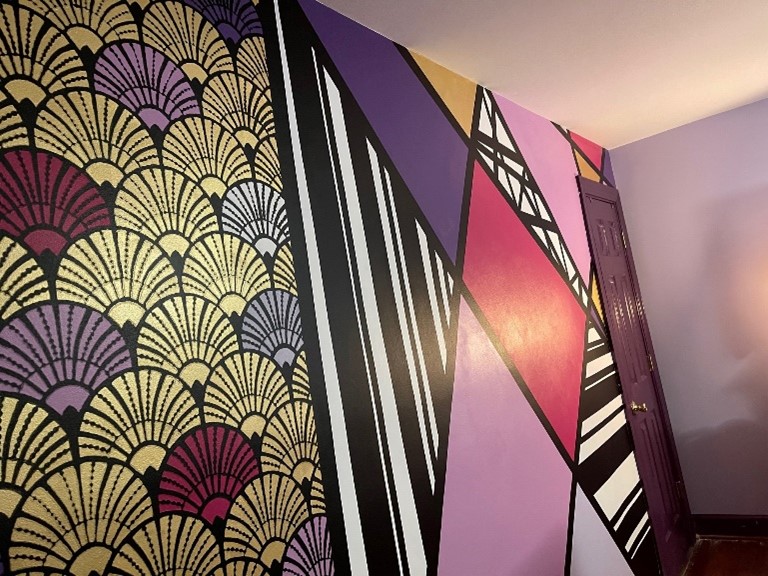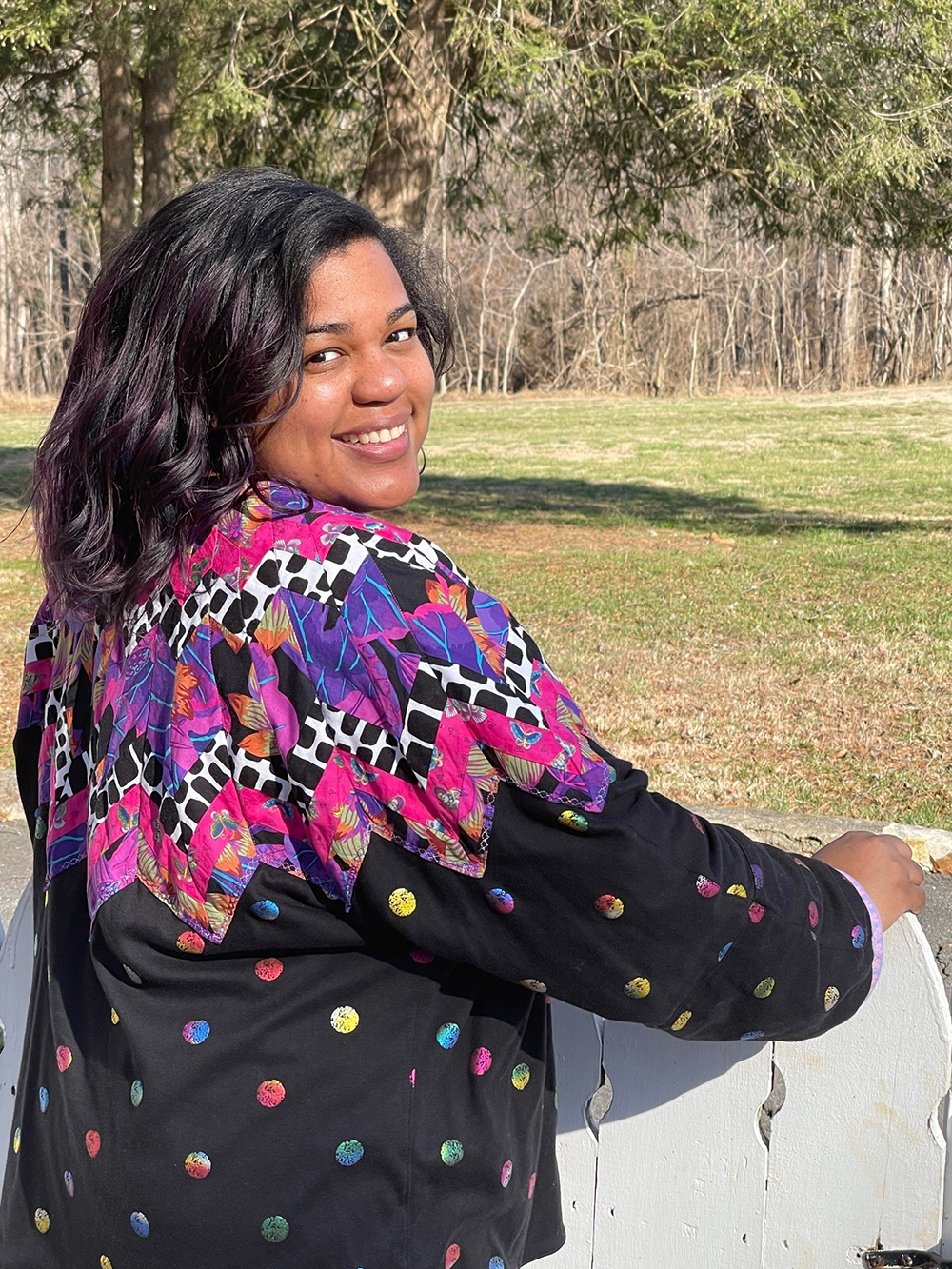Who or what sparked your interest in science and research?
 My mom has been and still is my biggest inspiration for my career path. She was a math and science teacher for 38 years, now retired. When I was little, I spent a lot of time in her classrooms, and I went along with her to teacher supply stores. I was always eager to get new workbooks and science experiment kits to further my knowledge above and beyond what I was learning in school. From a young age, I wanted to know how everything worked. As I got older, I chose the field of physiology, which allowed me to focus on learning how the human body worked, what happens when something goes wrong, and how the body adapts to different challenges and situations. As a scholar in her own right, my mother shaped my academic career and always encourages and supports me in all my endeavors.
My mom has been and still is my biggest inspiration for my career path. She was a math and science teacher for 38 years, now retired. When I was little, I spent a lot of time in her classrooms, and I went along with her to teacher supply stores. I was always eager to get new workbooks and science experiment kits to further my knowledge above and beyond what I was learning in school. From a young age, I wanted to know how everything worked. As I got older, I chose the field of physiology, which allowed me to focus on learning how the human body worked, what happens when something goes wrong, and how the body adapts to different challenges and situations. As a scholar in her own right, my mother shaped my academic career and always encourages and supports me in all my endeavors.
Did you encounter challenges as you pursued your education and career? How did you navigate them?
I belong to multiple historically underrepresented groups and was often “the first” and “the only” to achieve my academic roles and accomplishments—I have overcome many obstacles at every stage of training and in my career, which is a major source of inspiration that I pull from in my current role. One of the biggest impediments to pursuing my scientific career has been ableism, which is prejudice and discrimination against those who have disabilities. Only a few years after beginning my academic career as a professor, I acquired several complex medical conditions that became visible as they progressed, requiring me to navigate the world with the help of mobility aids and assistive devices. As soon as people see a brace or my wheelchair, they often automatically perceive my academic abilities as “less than,” even though those are simply tools that I use to help me continue striving for my goals instead of wasting my energy on things like struggling to walk. I’m frequently underestimated and treated unjustly; however, I’m also a stronger scientist because of my disability and the skills I’ve gained from managing my complex medical care. I’ve learned to cope with the daily challenges through resilience and savvy problem-solving and expertly balance competing demands while staying focused on the career I love.
You spent much of your early career in academia. What led to your transition to NIH and NICHD?
In academia, I had the pleasure of teaching, training, and mentoring underrepresented scholars in the biomedical sciences. Additionally, I led a research program focused on preventing and managing chronic diseases through the promotion of healthy lifestyle behaviors, with an emphasis on addressing health disparities and promoting health equity. My research initially focused on teaching people to practice healthy behaviors like being physically active, eating a balanced diet, getting adequate sleep, reducing stress, and staying on top of preventative health screenings to reduce their individual chronic disease risk factors, but eventually I transitioned to health policy research given the major impact that structural and systemic barriers have on people’s health.
The same can be said about a person’s ability to pursue a scientific career and to compete for research grants. I realized that I wanted to have the opportunity to share my experience as someone who learned the hard way how to lead a successful research career at a non-traditional research institution to assist other investigators and to inform NIH policies, programs, and grant offerings. At NIH as a program officer, I enjoyed advising researchers and assisting them in applying for our grants and managing their awards. Now, at NICHD, I truly get to utilize the breadth of my experiences to shape how an NIH institute approaches supporting the scientific workforce and contributes to advancing research on health disparities and health equity.
What gives you work-life balance? Do you have a hobby you enjoy?

Credit: Amanda Alise Price, Ph.D.
I have to be structured at work as a scientist and research administrator, so outside of work I enjoy the freedom and limitless creativity of being an artist and maker. I choose to create the beauty I want to see in the world through my art—my current favorites are sewing, quilting, and painting murals, all hobbies I acquired through the long days of isolating at home during the pandemic. I have six sewing machines, each having a unique purpose and allowing me to pursue more advanced techniques in my sewing and quilting. I enjoy combining my hobbies—my most recent project involved painting a four-walled mural as part of a room makeover to fit my newest sewing machine, a longarm quilting machine with a 12-foot frame that takes up half the room!

Credit: Amanda Alise Price, Ph.D.
Can you explain your job to people who are not familiar with scientific positions outside of a laboratory or clinical setting?
I am a research administrator who develops and manages the policies, procedures, and programs that support scientists and steers the institute’s scientific investments. I focus on promoting diversity, equity, inclusion, and accessibility among our internal workforce at NICHD, increasing scientific workforce diversity among our extramural and intramural communities, and directing health disparities and health equity research across the institute.
What are your goals for NICHD in the short- and long-term?
I am dedicated to ensuring that diversity, equity, inclusion, and accessibility are considered in everything that we do at NICHD and that we are providing opportunities for everyone to pursue careers in the biomedical sciences. I am passionate about mentoring and supporting career development and am excited that we are increasing NICHD’s outreach and engagement activities, particularly through participation in conferences, workshops, and virtual meetings. I really enjoy talking to the scientific community and connecting them with opportunities at NIH. We also have plans to develop resources on our website to assist people in accessing the information they need to be successful.
What advice can you offer to people who are at an earlier stage of their career?
Lean into the things that interest you, seek opportunities to further your knowledge, and specialize in the unique skills or expertise that you possess that others do not or find too challenging. Also, you don’t always have to be looking for your next job; however, you should always be building your expertise to ensure that you’re always ready when an opportunity presents itself.
Return to Get to Know NICHD.
 BACK TO TOP
BACK TO TOP